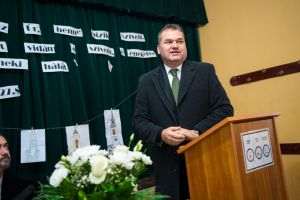President Emmanuel Macron's power is being shaken from its foundations after Rassemblement National and Les Republicains obtained 33.15% of the votes cast, i.e. more than 10 million votes, in the first round of the parliamentary elections in France, according to the daily Le Figaro.
The quoted source shows that, according to the definitive official data, 39 MPs supported by the extremist party were elected in the first round, including Marine Le Pen. The New Popular Front (NFP), which resulted from the union of the left with the extreme left, obtained 27.99% of the votes, that is, almost 9 million votes. 32 deputies supported by the NFP were elected in the first round, including Olivier Faure, first secretary of the Socialist Party, Emmanuel Gregoire, a close associate of the mayor of Paris, Anne Hidalgo, as well as Sophia Chikirou, the partner of Jean-Luc Melenchon, the leader extreme left.
The party founded by Emmanuel Macron, Ensemble, and its ally, Horizons, obtained only 20.04% of the vote, i.e. almost 7 million votes, ranking only third in the first of the parliamentary elections. Only two deputies were elected in the first round: Pierre Cazeneuve in Hauts-de-Seine and Mikaele Seo in Wallis and Futuna.
Turnout was 66.71% of registered voters, 20% more than in the previous election in 2022. It is an unprecedented level since a similar gesture of dissolving the Assembly in 1997 by then-President Jacques Chirac. This level of participation is close to the figures recorded in the 1980s, between 65% and 70% - with the exception of 1986, when voting took place under the proportional representation system with only a first round.
The second round of voting is scheduled for next Sunday, July 7, and the current week will be marked by negotiations on whether or not to maintain a candidate against the Nouveau Front Populaire or the Rassemblement National in the 306 cases of second-round elections where they are involve three candidates. There are also some cases in which four candidates enter the second round, which has not been seen for 50 years, notes the French press. To qualify for the runoff, candidates must place in the top two or have the votes of at least 12.5% of registered voters. The higher the turnout, the higher the number of qualified candidates. Candidates who decide to withdraw - which would favor one or another of the other competitors - must announce this by 18.00 today.
BFM TV shows that it is hard to believe that Emmanuel Macron's formation will come to an agreement with the left parties, and especially with the extreme left, for a pact in the second round of parliamentarians through which there will be After the elections on June 30, 39 deputies of the National Rally have already been elected in the first round and 297 candidates came first, compared to 155 for the New Popular Front (NFP) and 62 for the presidential camp.
To have a majority in the National Assembly, Rassemblement National needs 289 deputies, but it is hard to believe that it will get so many seats after the second round of voting, given that following the June 30 elections in several cities French left-wing parties organized several rallies calling for unity in order to block the access to government of the formation led by Marine Le Pen. The cited source states that the leaders of the left-wing parties and those of the Ensemble presidential formation requested the candidates in third place to withdraw from the race in order to increase the chances of the election of those in second place, to the detriment of the far-right candidates. Among these leaders is French Prime Minister Gabriel Attal who said: "In several hundred constituencies, our candidates will be present in the second round and will be the best choice to prevent the Rassemblement National from having an absolute majority. In other constituencies, we will withdraw our candidates in the third position, in order not to allow those from Rassemblement National to win in the second round".
Following this statement, several ministers in third place after the first round announced their withdrawal. This is the case, for example, of Marie Guevenoux, the Minister of Overseas Territories, who obtained only 27.11% of the vote, coming in behind United Left representative Julie Ozenne (37.6%) and Rassemblement National representative Paul -Henri Merrien (29.96%).
Marie Guevenoux wrote on the X network: "Tonight, without any prospect of victory, I have decided not to maintain my candidacy."
Following Sunday's election, President Emmanuel Macron said: "In front of the Rassemblement National, the time has come for us to have a union of the democratic and republican parties in the second round."
That is why, yesterday, the leaders of the left-wing formations and those of the presidential party had several discussions to decide what they will do in the second round of parliamentarians to block the extreme right led by Marine Le Pen.






























































